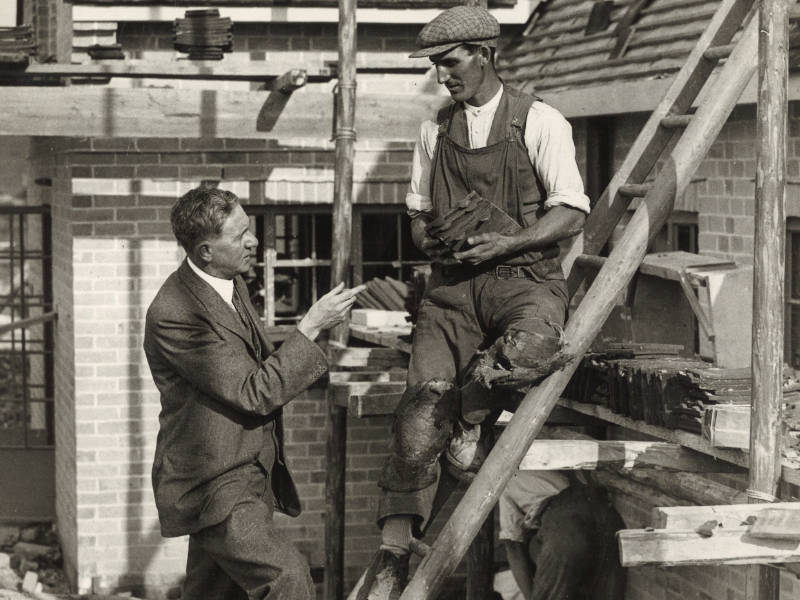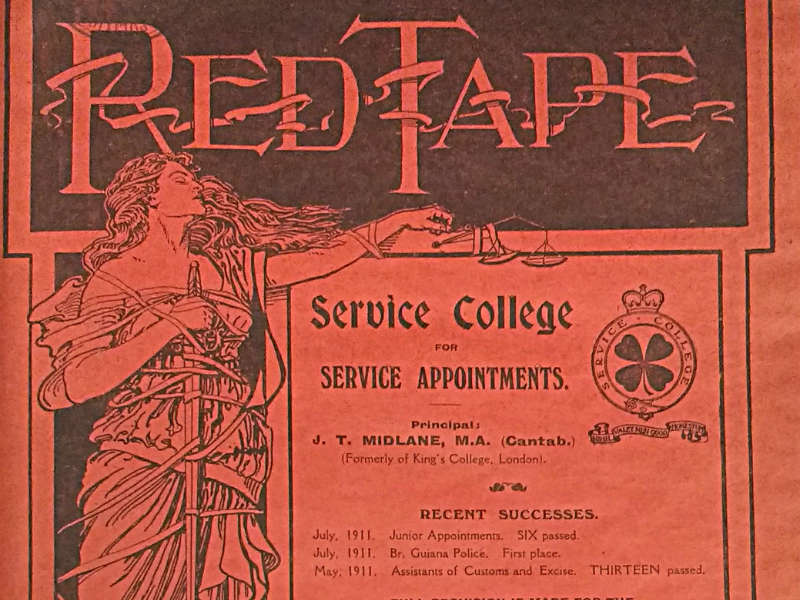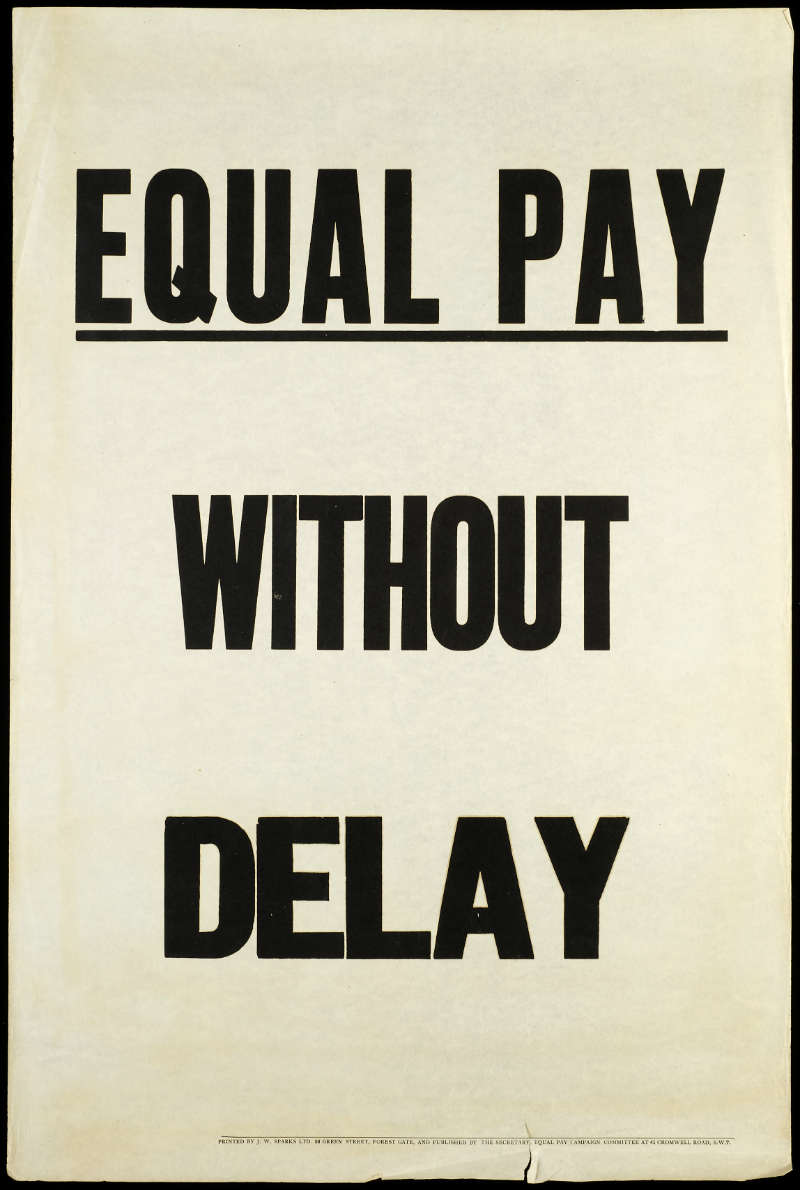Background
The Labour and Working Lives holdings at LSE trace the interconnections between employees and employers and the fractures, negotiations and agreements which have shaped their interactions. This includes materials which describes the working lives of individuals as well as larger collections of personal papers of people who have been influential in improving working conditions.
Trade Unions and Industrial Relations
Sidney and Beatrice Webb's compendious collection of Trade Union materials is not only useful for researchers interested in organised labour and industrial relations but also could be a rich seam for those interested in a number of other themes. Particularly useful for those researching the working lives of people and then organisation of people and groups.
There are also personal papers of Trade Unionists. Two of the largest collections are those of Arthur Cooke and Walter Citrine. Cooke was a trade union official for thirty years and an active member of the Society of Lithographic Artists, Designers, Engravers and Process Workers. Walter Citrine held a number of roles including serving as General Secretary of the TUC between 1926-1946.
LSE Library holds thousands of pamphlets on labour, including wages, conditions of work and the history of the trade union movement. The main scope of the collection is on the history of labour in Britain from the 19th century onwards, but there is an impressive number of items from other countries.
As well as pamphlets, we hold several hundred old trade union journals also from the Webb Trade Union collection. These are kept in closed access, in a special series named COLL E.D.
 Walter Citrine talking to a tiler working on the Tolpuddle Cottages, 1934.
Walter Citrine talking to a tiler working on the Tolpuddle Cottages, 1934.
Management
The archives also hold some materials relating to Management and company structure. The Management Research Group was founded by Benjamin Seebohm Rowntree (son of the business man and philanthropist, Joseph Rowntree) and aimed to provide a forum for companies to collaborate and exchange ideas relating to different methods of management.
The National Institute of Industrial Psychology was formed in 1921 and brought psychology into the workplace. The institute worked with businesses and organisations of different kinds to carry out psychological research into workforces and improve their effectiveness.
Professor Sir Ronald Edwards began to deliver a series of seminars on Thursday evenings at the LSE which have been titled the Seminar on Problems in Industrial Administration. The collection spans 18 volumes of the thoughts and perspectives of Sir Ronald and guests relating to business administration.
A strand of Charles Booth's landmark research, which became Life and Labour of the People in London, focused on many industries at the end of the 19th Century. Booth focused particularly on working class jobs and roles which had been ignored by others and the interviews and questionnaires from which many of the books’ conclusions were drawn are available as notebooks constituting a fascinating piece of primary research.
 Red Tape, The Civil Service Magazine, 1911.
Red Tape, The Civil Service Magazine, 1911.
Women and employment
We also hold a number of papers and materials telling the ways in which women gained and fought for access to and more equitable treatment at work.
A significantly large collection, Violet Markham's personal papers hold many items relating to her work as a member of various organisations including those with a focus on the gendered impact of poverty and unemployment on women.
Emerging from one of the earlier women's trade union organisations (the Women's Trade Union Association), the Women's Industrial Council also contributed to the improvement of women's working lives, whether through lobbying activities or training for individuals.
There is also a small collection from the Committee on Woman Power which ran from 1940-1945 in order to investigate the problems and possibilities of women's war work.
Strand 6 of The Women's Library Archives contains a number of archives focused on campaigns to improve women's statuses and conditions in the workplace. The Library also holds a large amount of material relating to the movement for equal pay.
We also hold the Fawcett Collection of oral histories undertaken as part of the National Life Story Collection. These interviews were carried out with pioneering career women, each of who made their mark in traditionally male-dominated areas of employment.
Economic History sources
We have digitised several publications from our large holdings of historical economic sources. This includes titles such as the Labour Gazette and the Employment and Productivity Gazette and may be of interest to labour researchers. Explore the collection.
 Campaign poster by the Equal Pay Campaign Committee, c.1950.
Campaign poster by the Equal Pay Campaign Committee, c.1950.
How to search
Some potentially useful search terms for locating material relevant to this topic are: work, labour, wages, collective bargaining, employment, equal pay, pay and conditions, industry. We always advise researchers looking generally at topics to make their own searches by using the following catalogues:
- Library Search, for finding print materials: books, journals, pamphlets and other published items, including print materials from The Women's Library.
- LSE Archive catalogue, for finding and locating archive material held in the LSE and Women's Library archive.
How to access
Most of the material highlighted here is stored in closed access and must be consulted in The Women's Library Reading Room on the 4th floor of LSE Library. Find out how to book your place and order material on our access archives and special collections page.
Further help
If you need specific help with any of the collections mentionend here get in touch with our Curator for Economics and Social Policy, Indy Bhullar.